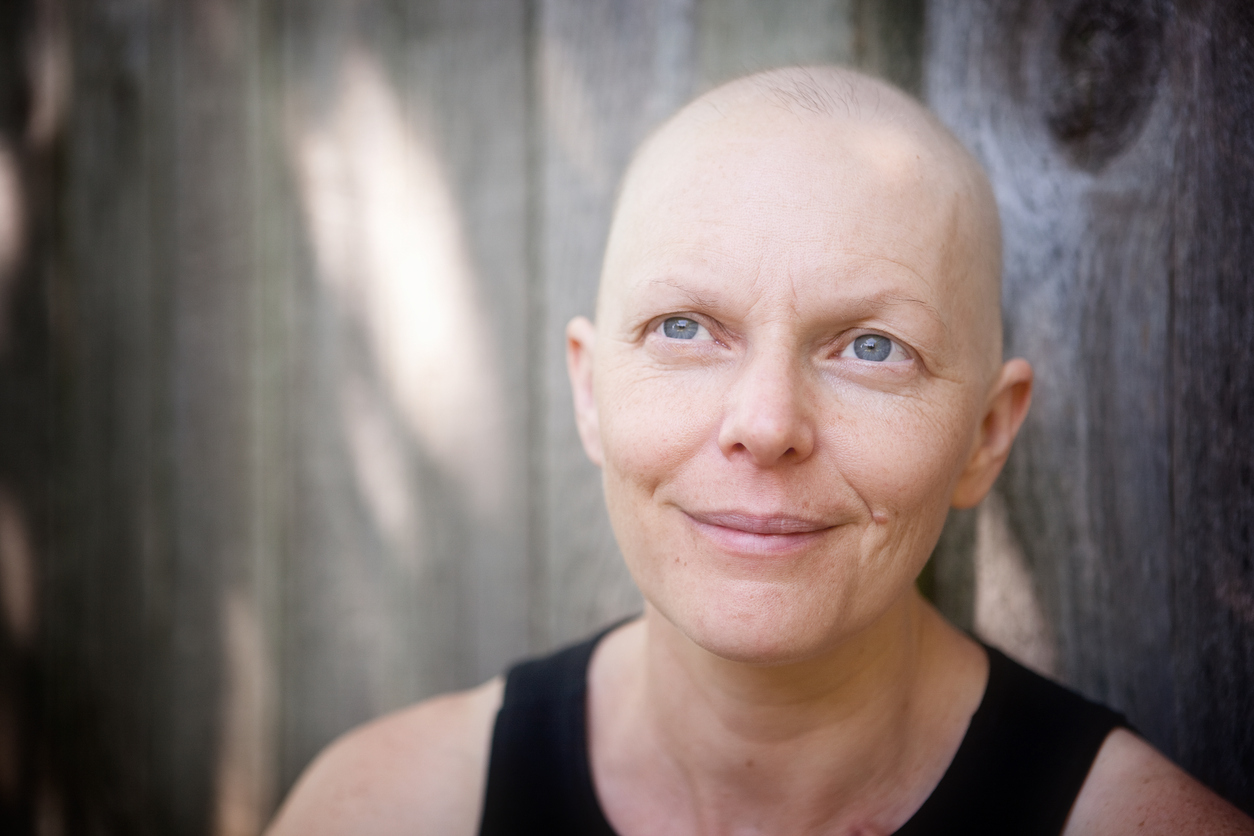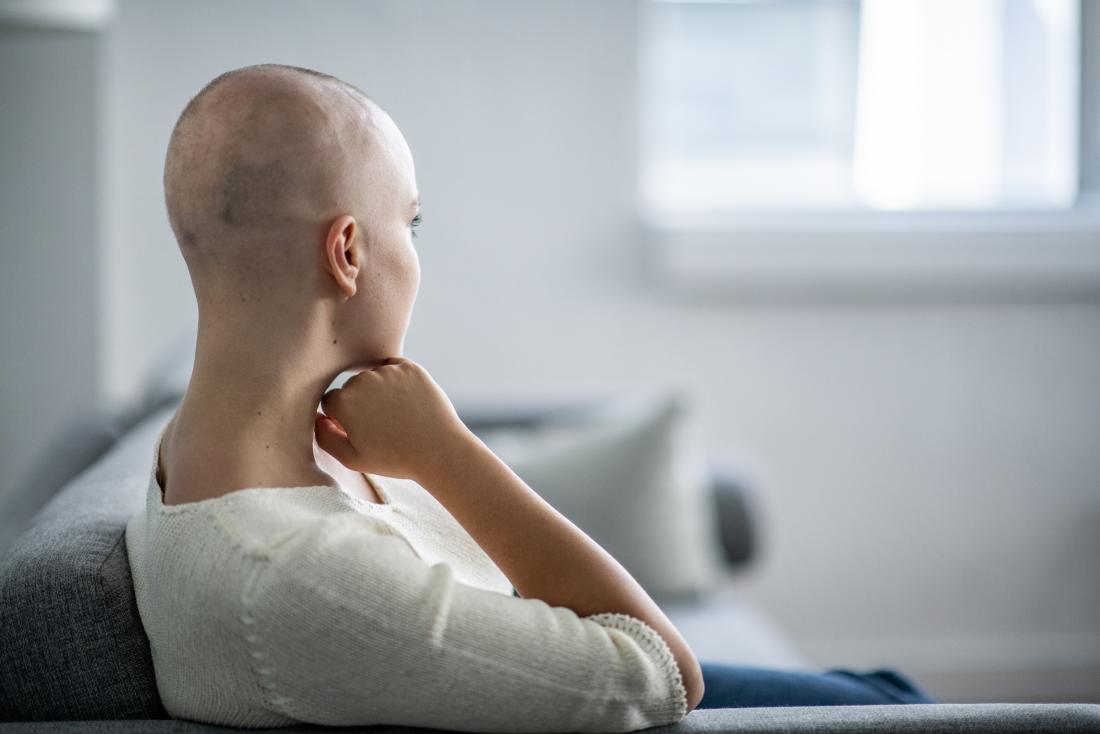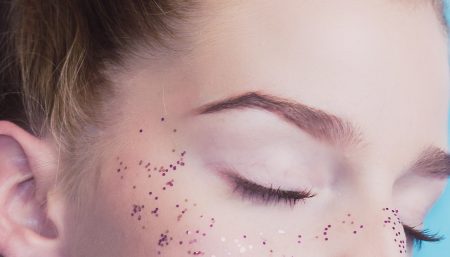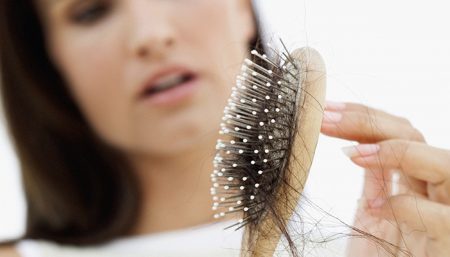
Chemotherapy is the use of drugs to destroy cancer cells by disrupting their ability to grow and multiply. It may be used alone or along with radiation and/or surgery as a treatment. Chemotherapy targets all rapidly dividing cells—healthy cells as well as cancer cells. Whether or not you have hair loss from your chemotherapy depends mostly on the type and dose of medication you receive. But you can maintain a healthy body image after hair loss by maintaining a positive attitude and the support of your friends and family.
Whether or not you have hair loss from your chemotherapy depends mostly on the type and dose of medication you receive. But whether you can maintain a healthy body image after hair loss depends a lot on your attitude and the support of your friends and family.
Hair usually begins falling out one to three weeks after you start treatment. It could fall out in clumps or gradually. You’ll likely notice accumulations of loose hair on your pillow, in your hairbrush or comb, or in your sink or shower drain. Your scalp may feel tender. Some chemotherapy drugs affect only the hair on your head. Others cause the loss of eyebrows and eyelashes, pubic hair, and hair on your legs, arms, or underarms.
Coping with Hair Loss
- Go for a haircut: A short haircut minimizes the appearance of thinning and makes complete hair loss less alarming. Opt for one that suits you and seems practical. When starting chemo most hair loss occurs 7-21 days after getting your first treatment. A shorter haircut, appears fuller.
- Wigs: Hairpieces are one solution, but must be matched exactly and styled on your head. They are available in a choice of human hair or synthetic. Its is best to leave this decision up to a knowledgeable hair replacement specialist. They will determine what will work best for you and your lifestyle. Get a second opinion if you wish.
- Hats & Turbans: Wear a turban at home at night to control the loose hairs as they fall out. Hats, turbans and scarves are good when wigs become too hot during summer. Do buy a lightweight cotton stretch cap and a warmer fleece hat before you lose too much hair because you will start to feel the changes in body heat dramatically.
- Use Satin pillow at rest: Satin feels really nice on an itchy, painful scalp.
- Apply Vitamin E Oil to your Scalp. Your scalp tries to hold onto the hair which might cause some discomfort, pain and itching. Vitamin E oil is really helpful for minimizing pain and itching. Just rub the oil on your scalp as often as you like.
- Stay Positive: Remind yourself that the hair loss is visible proof that chemotherapy is killing the cancer cells! Talk with other women who had suffered hair loss due to treatment and now have their hair back. Talking with other survivors left me feeling inspired and hopeful.
- Visit a cosmetologist: You will most likely lose all the hair on your body. So if we want to look at this in a positive light, think about how much you will save on waxing and dying! But then again it feels kind of funny not to have eyebrows. You should visit your local cosmetologist and have her teach you how to draw eyebrows.
- Watch your Hair grow: The hair usually grows back when the illness ends or the therapy is finished.
Daily Hair Care

- Use a gentle shampoo, like baby shampoo and mild conditioner, every 3 to 5 days to keep hair healthy looking.
- Avoid using things that will add stress to your hair like pony tail elastics or fasteners, curlers, hot rollers or bobby pins.
- Avoid using hair dryer. If needed use only on low and keep it several inches form you head. Or, preferably, towel dry by patting gently.
- Switch to a wide toothed comb and a brush with ball end bristles.
- Do not use chemical hair dyes or perms
- Wearing a cotton stretch caps to bed will slow down stress to the hair and catch loose hairs.
- You should speak to your health care provider before starting any changes in your grooming habits.
- Applying minoxidil — a drug approved for pattern hair loss to your scalp before and during chemotherapy isn’t likely to prevent your hair loss, although some research shows it may speed up your hair re-growth. More research is needed to understand whether minoxidil is effective in re-growing hair after cancer treatment.
For more:
Disclaimer
The Content is not intended to be a substitute for professional medical advice, diagnosis, or treatment. Always seek the advice of your physician or other qualified health provider with any questions you may have regarding a medical condition.



